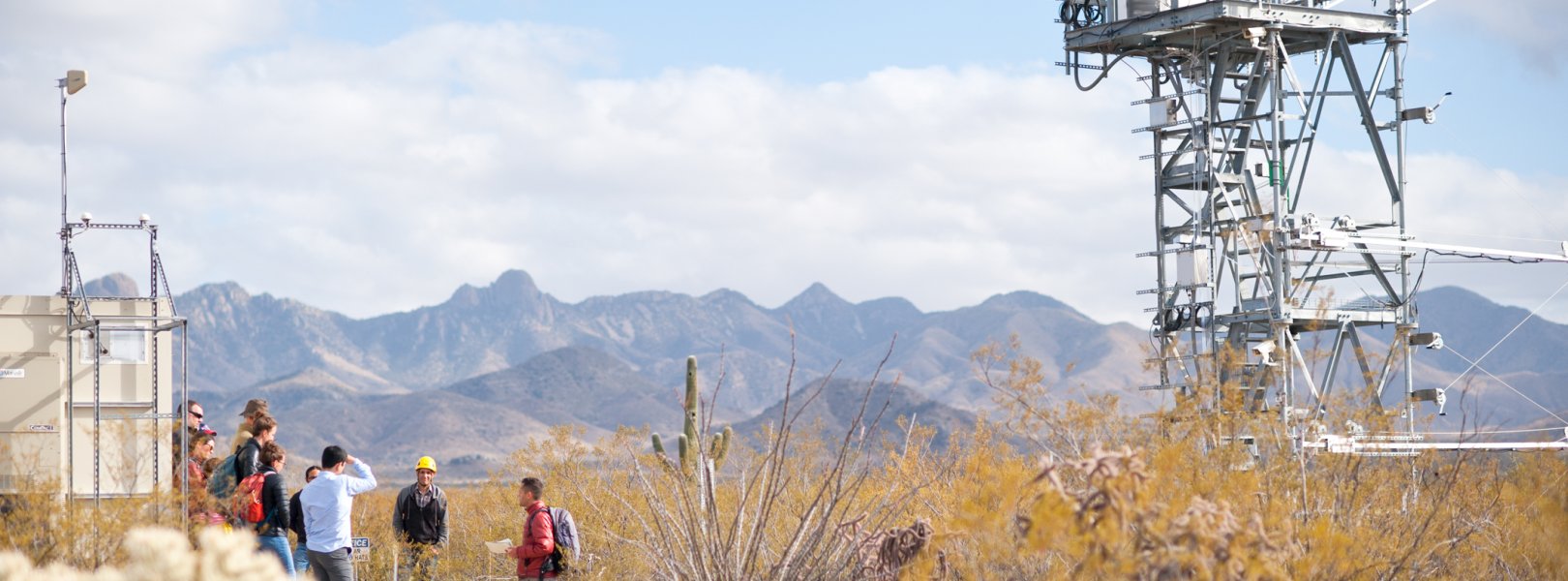Community Engagement

NEON values our user community and strives to provide the services and resources that meet the community's evolving needs. This requires continuously listening to our users on ways we can improve, while also identifying opportunities to meet the needs of a broader community in order to grow our user base. We aim to achieve an optimized Observatory with a robust and active NEON user community that transforms science and maximizes NEON-related research over the next 30 years and beyond.
Optimizing NEON
Optimizing NEON requires continuously improving and adapting the data, resources, and infrastructure to meet community needs through our engagement strategy. NEON is intended to be a community resource and, as such, must reflect the evolving needs of its user community and society at large. We provide numerous ways to collect community feedback (see below). We work to ensure a wide breadth of perspectives is represented by all of NEON's external advisory bodies. This enhances the development of new, innovative ideas and research questions that NEON can help address while ensuring the program addresses issues of social and cultural relevance.
How Community Feedback Impacts NEON Operations
Engaging an Active User Community
Building a robust and knowledgable user community is supported through multiple education and training programs. They allow transdisciplinary user groups to gain the data management and analysis skills needed to work effectively with NEON data as well as experience working with team science and reproducible research approaches. Our outreach activities also broaden awareness of the program through social media campaigns that reach existing and potential users.
Advancing Science
Advancing science is at the core of NEON's mission. Numerous science workshops and working groups hosted or led by our staff have facilitated convergent research approaches to catalyze scientific innovation and discovery. Science and Domain staff continuously offer research support to transdisciplinary scientists through proposal development and the Research Support Services program. The contributions made to relevant research networks have provided opportunities for the expansion of NEON operations by promoting data synergy and interoperability. Either through direct or indirect science engagement, the program has delivered numerous peer-reviewed publications.
Ways to Engage
There are many ways you can engage with the NEON program:
- Check out upcoming events in your local area
- Connect with us via Twitter/X, Facebook, LinkedIn, Instagram, or YouTube
- Join an external advisory board
- Collaborate with us on your research and educational projects
- Become a partner
- Get support incorporating NEON infrastructure into your research
- Request a site tour
- Request a presentation or workshop
- Come work with us
- Send a general inquiry or provide feedback
Engagement Metrics
As part of our engagement strategy, NEON staff collect data on all of our engagement activities to ensure we are making progress towards the outcomes identified in our strategic engagement plan. If you have questions about our metrics or reporting procedures, please contact our strategic engagement team.
NEON Reports
Over the years, the NEON program has collected feedback from the community to guide construction, and now operations, of the Observatory. Through these activities, we have developed several reports summarizing the feedback we have received, and in some cases, our response to that feedback. Below are links to reports from our external advisory boards, community needs assessments, and evaluation of programs led both internally and externally by our partnering organizations.
External Advisory Boards
Reports from our Science, Technology, and Education Advisory Committee (STEAC) are written twice a year and can be found on the STEAC webpage, along with monthly meeting minutes.
Reports from our Technical Working Groups (TWGs) can be found on each TWG webpage.